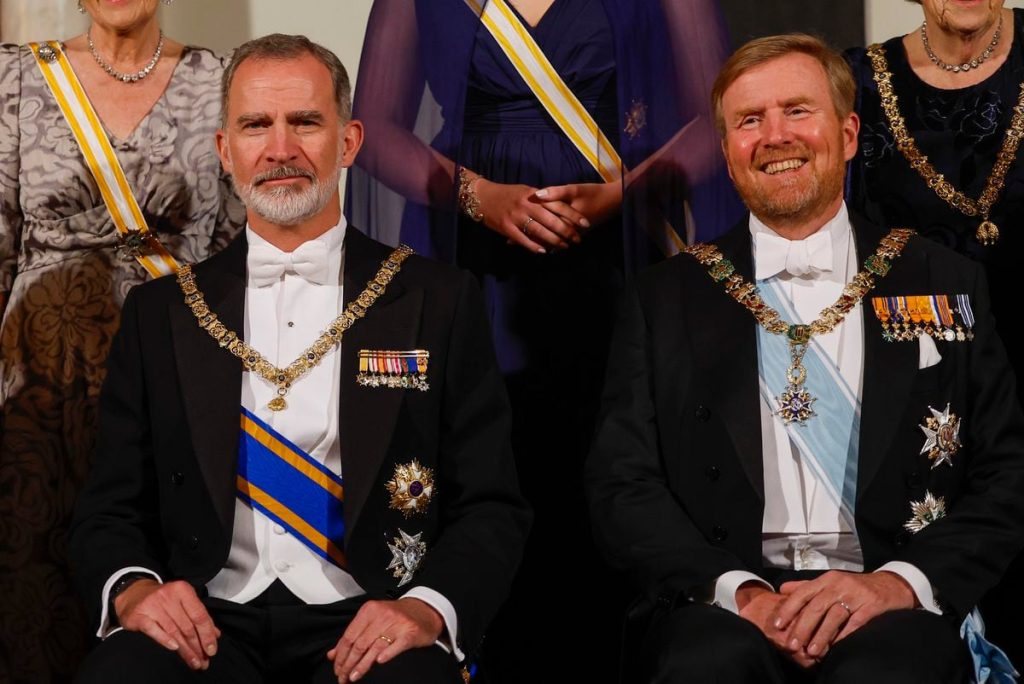Felipe VI and Queen Letizia have embarked on their first State trip to the Netherlands amid ongoing conflicts near the European Union’s borders and in the Eastern Mediterranean. During a gala dinner held at the Royal Palace of Amsterdam, Felipe VI highlighted the importance of a strong and united Europe in addressing challenges such as the invasion of Russia in Ukraine and the Gaza conflict. The monarch emphasized the need for Europe to focus on strategic autonomy to reduce dependence on Moscow. The visit also included a stop at the port of Amsterdam, where plans are in place to receive green hydrogen from Bilbao by 2030 through a maritime corridor, as part of efforts to break ties with Russia.
The conflict in Ukraine has underscored the vulnerabilities faced by some European partners towards Russia, prompting Felipe VI to emphasize the importance of unity amongst EU and NATO members. The monarch stressed the role of monarchs in modern democracies, highlighting the shared objectives of stability, continuity, and the common good of the people within the framework of a parliamentary monarchy. The bilateral ties between Spain and the Netherlands, along with their joint membership in the EU and NATO, were also highlighted as crucial in addressing current global challenges.
During the State visit, Queen Letizia’s absence from the traditional ceremony due to a foot injury was noted, drawing attention to her health conditions. The royal couple’s meeting with Dutch authorities before the gala dinner was also marked by the appearance of Princess Amalia of Orange, the future Dutch head of state, in a significant role. The visit commenced with a formal ceremony at the Plaza Dam in Amsterdam, where national anthems were played, and a tribute was paid to fallen soldiers of World War II. Felipe VI and King Guillermo engaged in various activities at the Foundation Cruyff, demonstrating their support for children with disabilities and the importance of sports as a tool for social integration.
Established in 1997, the Cruyff Foundation operates over 300 sports facilities globally, with a focus on inclusivity and the empowerment of marginalized groups. The visit to one of these venues served to highlight the positive impact of sports in uniting communities and fostering social cohesion. The occasion was also attended by Jordi and Susila Cruyff, children of the late Dutch football legend Johan Cruyff, who emphasized the special connection between the two countries through the shared love for sports. The engagement with children and the interactive sports activities showcased the importance of such initiatives in promoting values and social inclusion.
Overall, the State visit of Felipe VI and Queen Letizia to the Netherlands marked a significant moment for strengthening ties between the two European countries amidst global challenges. The focus on strategic autonomy, shared values of democracy and the rule of law, as well as the role of sports in social integration, were key themes highlighted during the visit. The engagement with Dutch authorities, the royal family, and community initiatives underscored the importance of collaboration and unity in addressing common goals and priorities within the European context.















